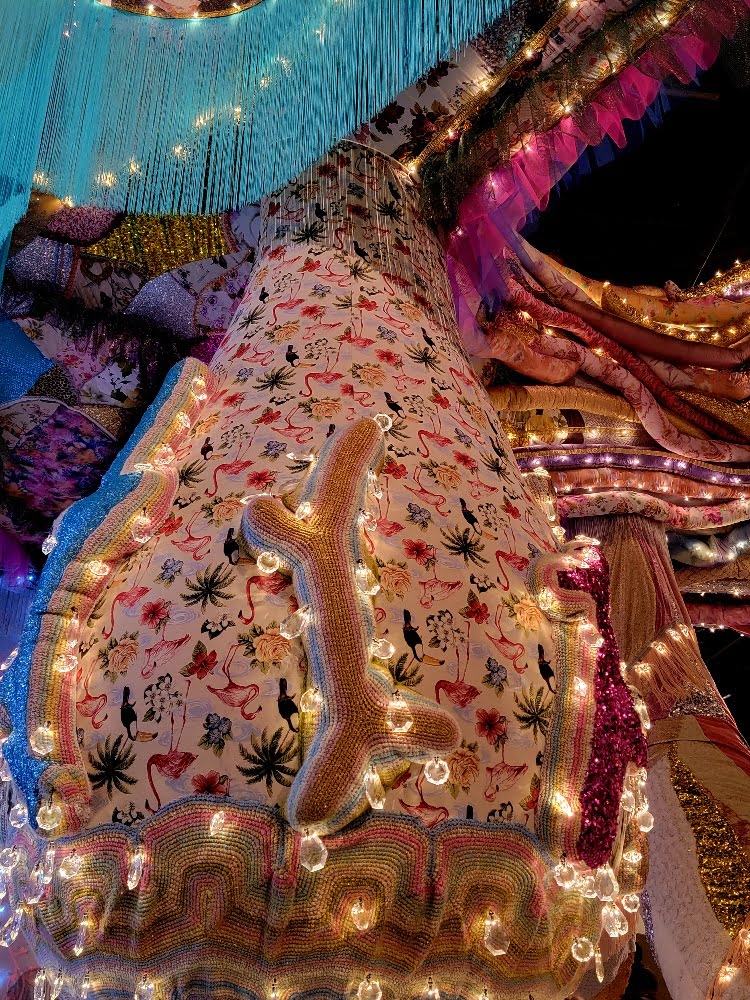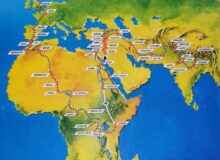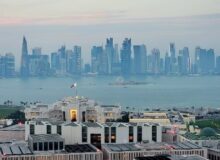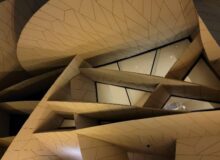About 10 million years ago the enzyme in our bodies used to detoxify alcohol, dehydrogenase…
Without Historical Intent or the Ambition of Exhausting Reality
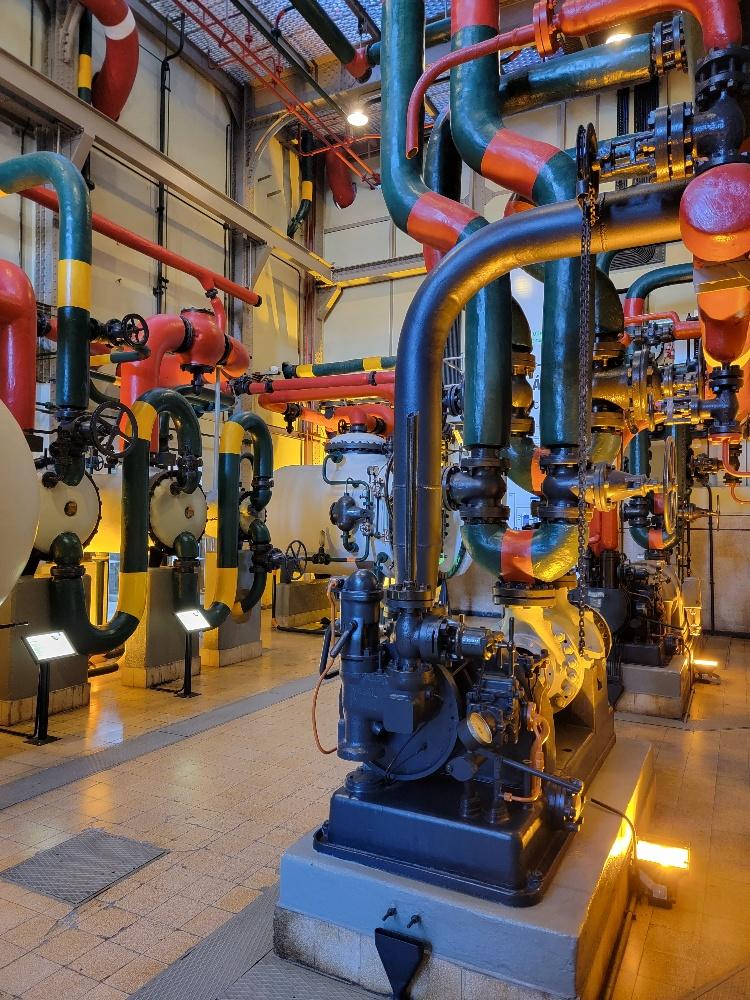
I read that ludicrous line, “without historical intent…” on a museum explanatory sheet today, about a curator. It’s not that I don’t care about modern art, it’s that I don’t care… Plus, look at that turbine above. That’s some historical intent and totally exhausting reality.
OK. Be positive! It was a spectacular day, best day of the vacation. About 22 degrees, sunny, no humidity, light breeze off the ocean. Mid-November, mainland Europe, no complaints. After breakfast we took the tram west along the Tagus to the Belem neighbourhood (again) for some cultural sights.
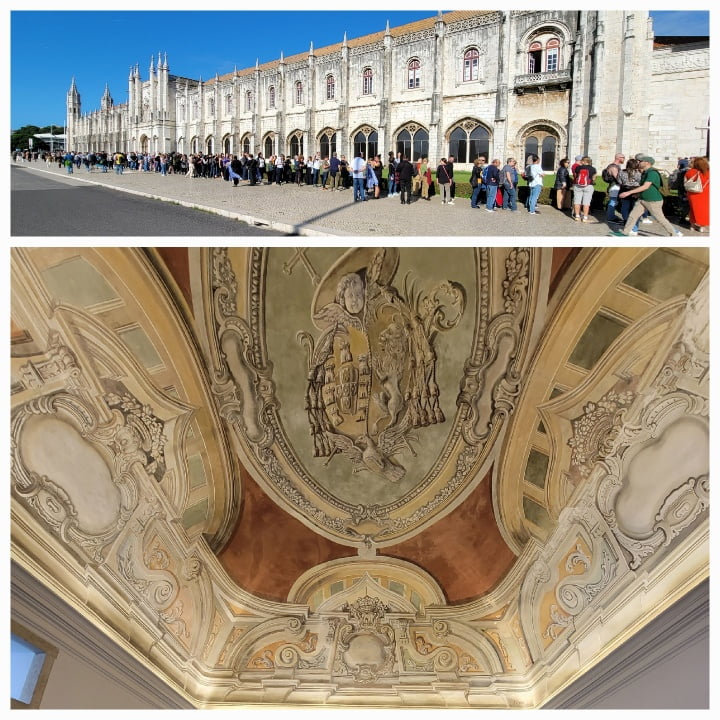
First stop, the Jeronimos Monastery, which dates to the early 1500s and was erected near where Vasco de Gama set off on his explorations. The line-up to get in was enormous—but, hardy tourists, acclimatized to “the queue” we persevered. Inside, you see the cloisters, some antechambers, but you don’t see the whole edifice (which took 100 years to build). Still, it echoes its cousins in Seville and Granada in both grandeur and austerity. Built with money the king obtained from taxing sea traders it is evident that, visually, no expense was spared. UNESCO heritage site, check.
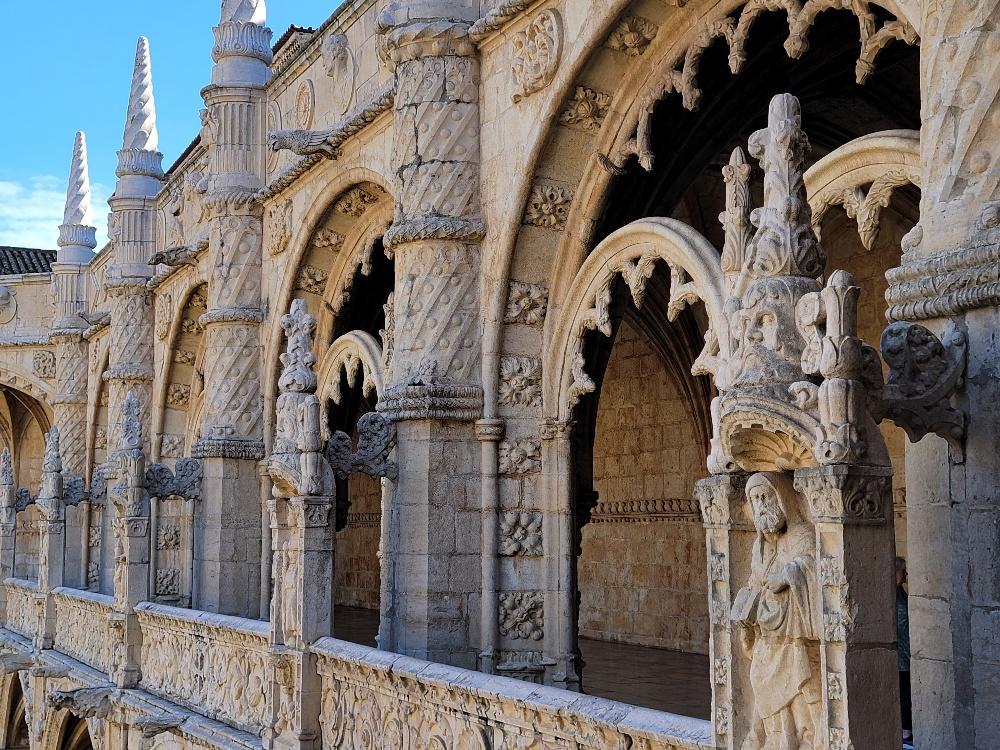
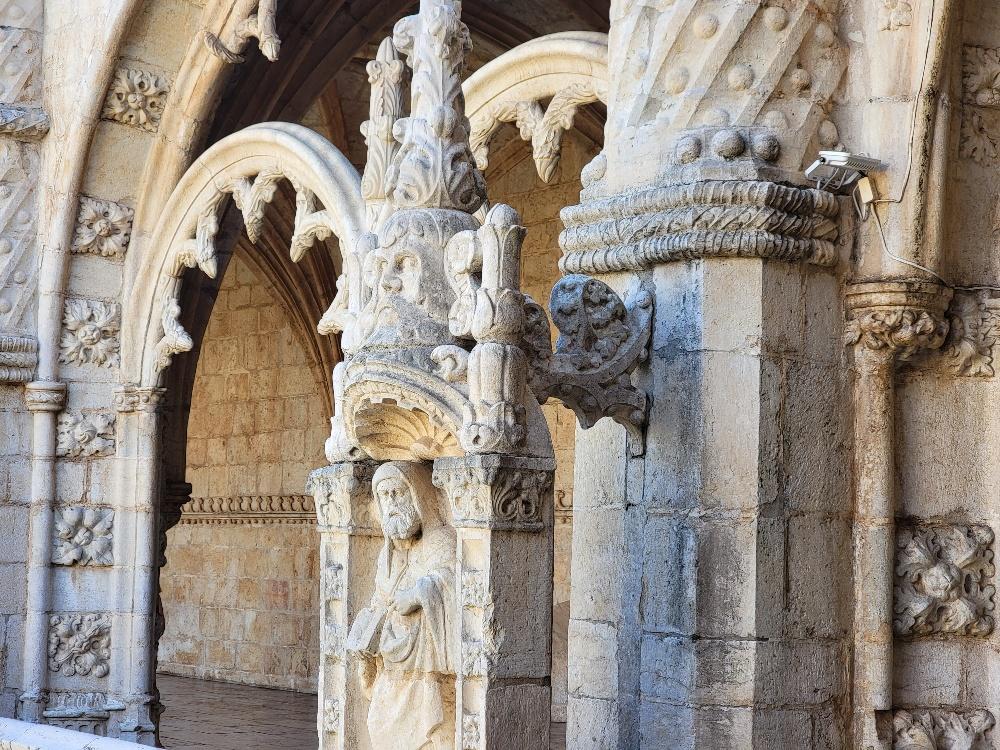
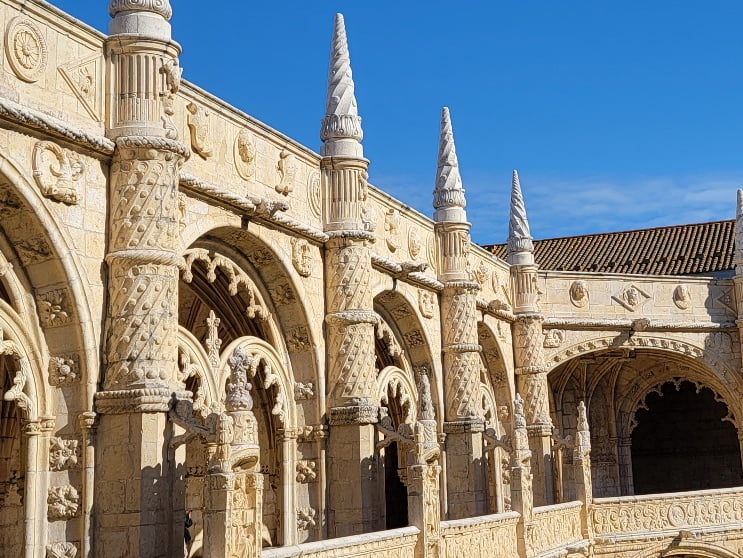
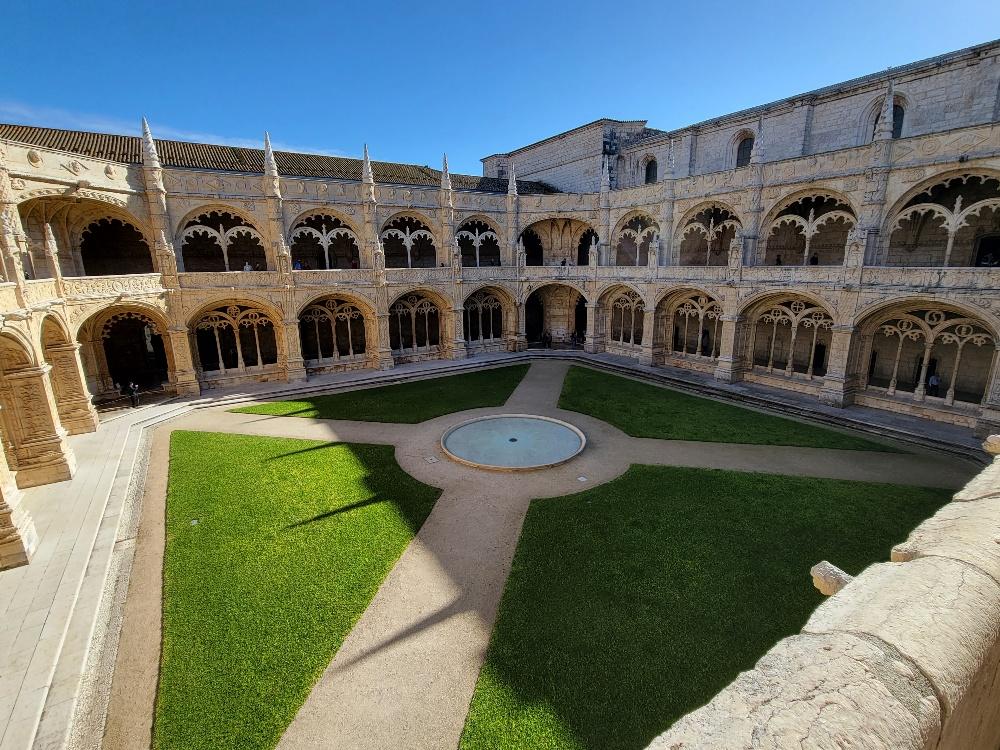
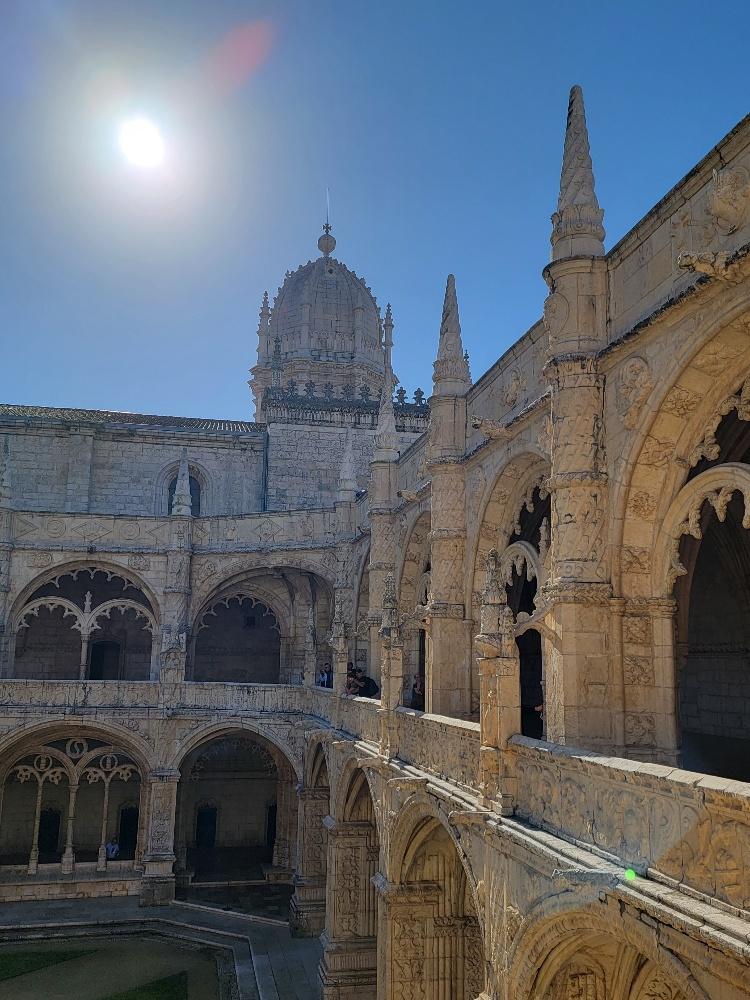
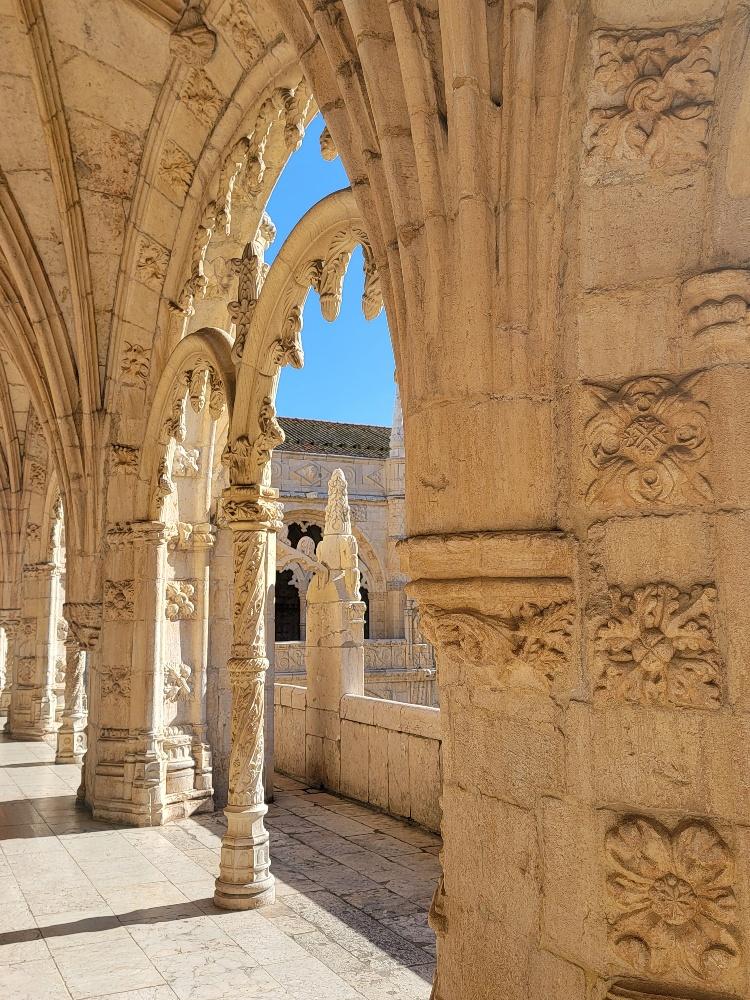
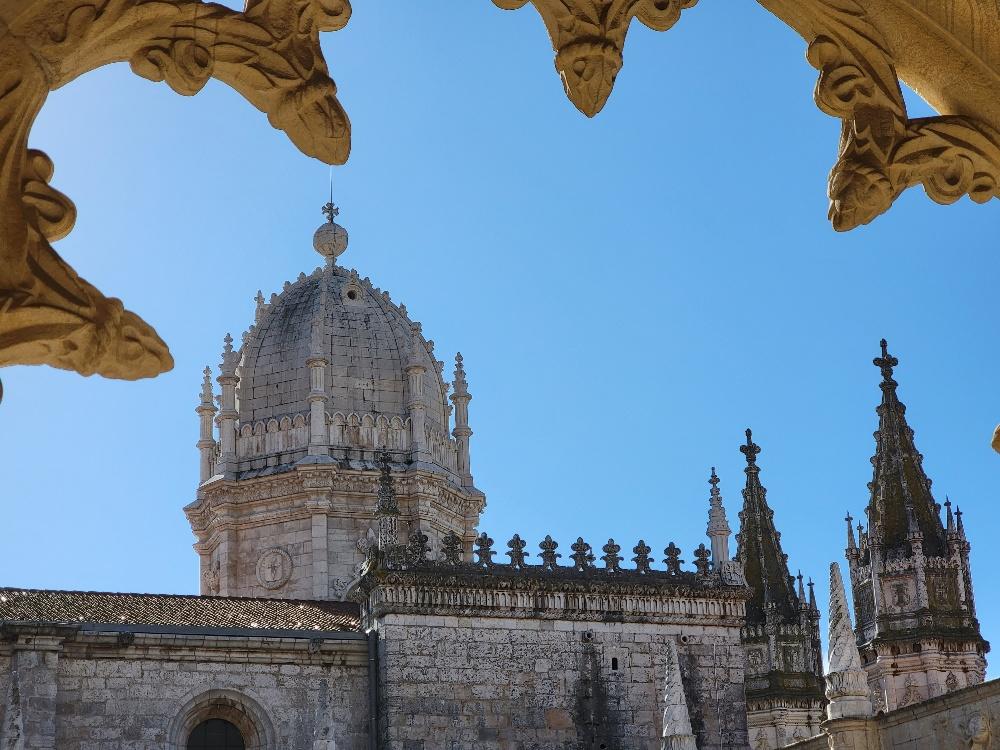
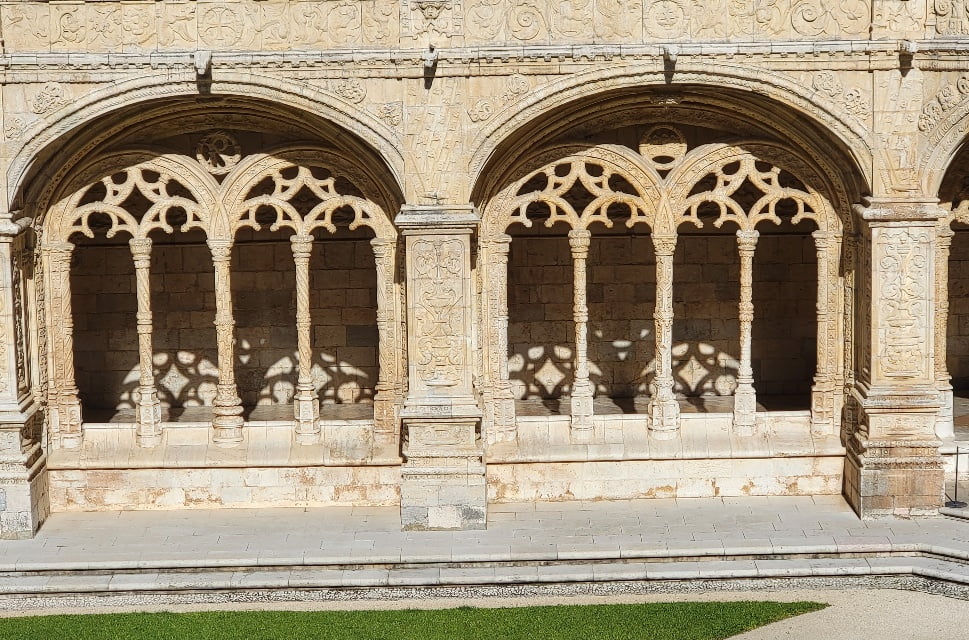
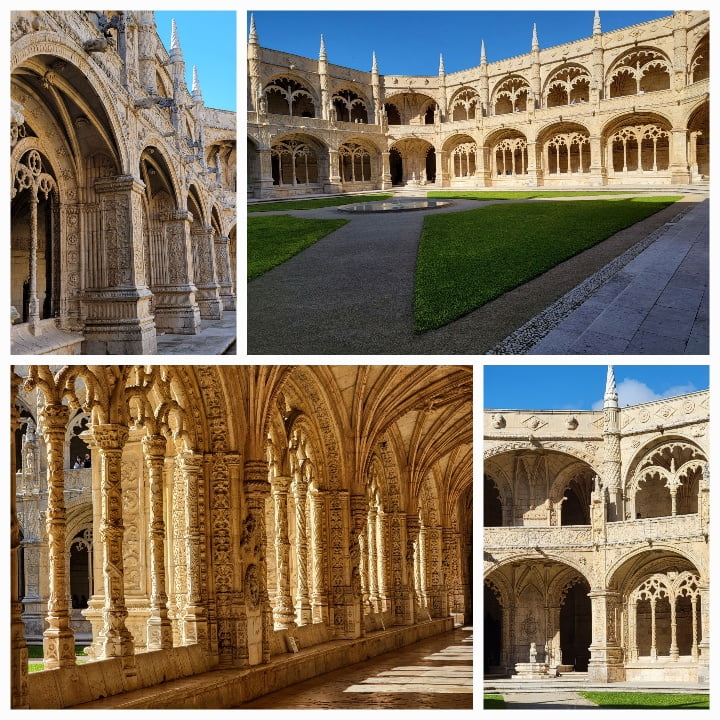
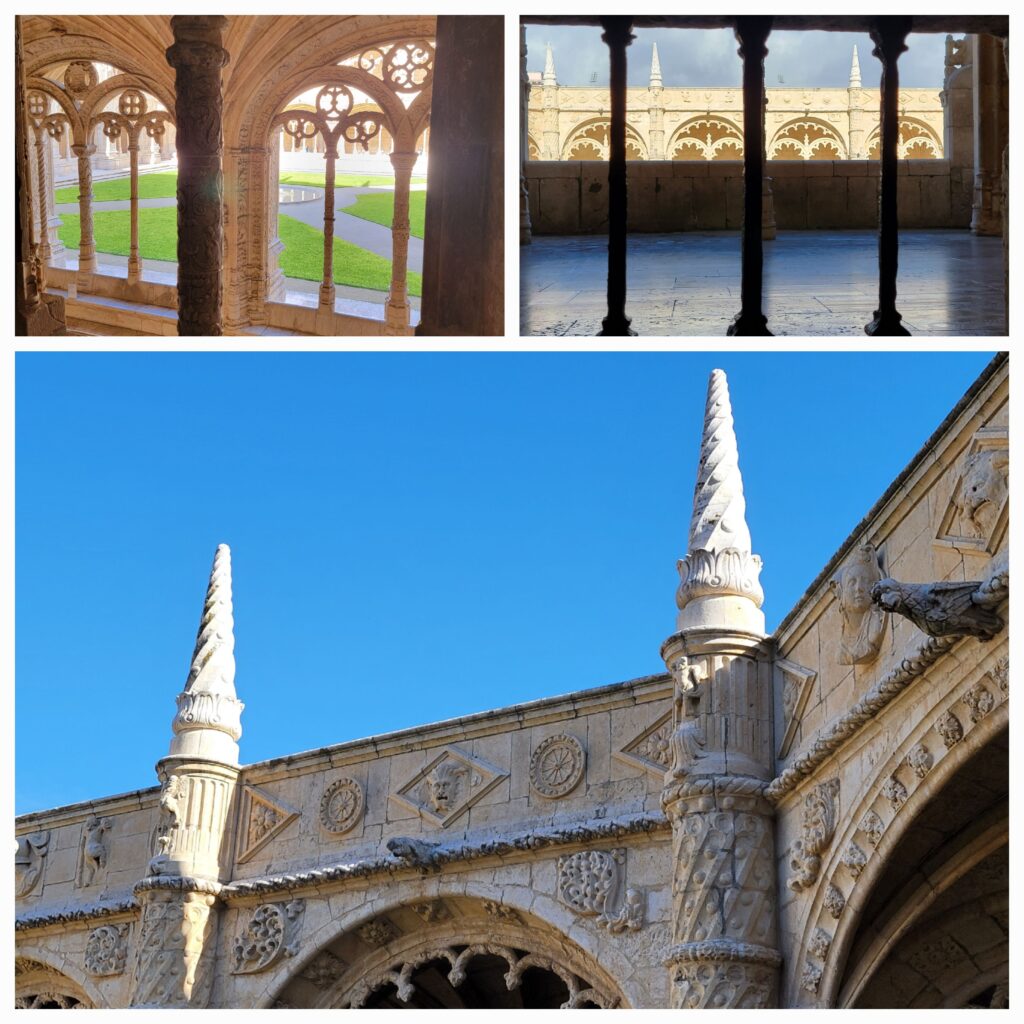
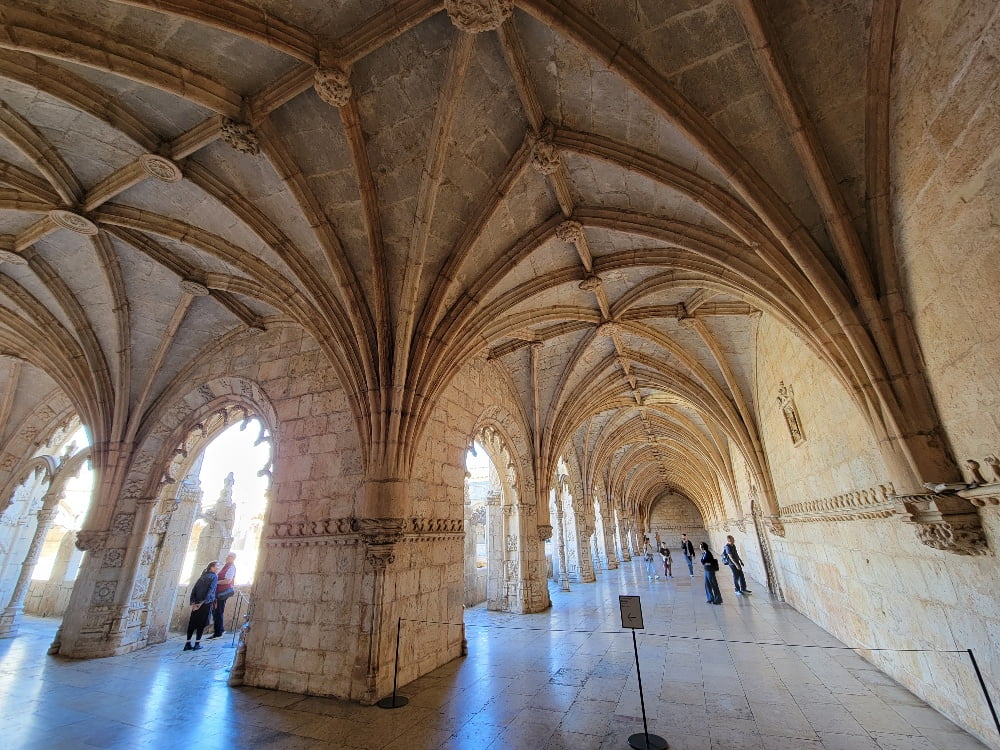
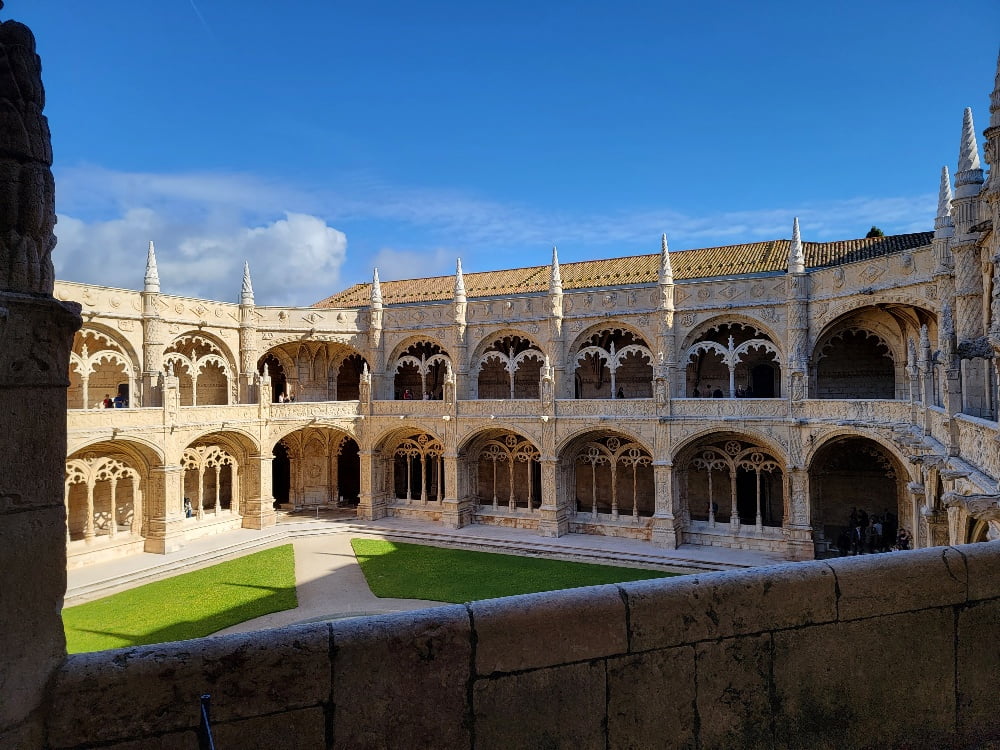
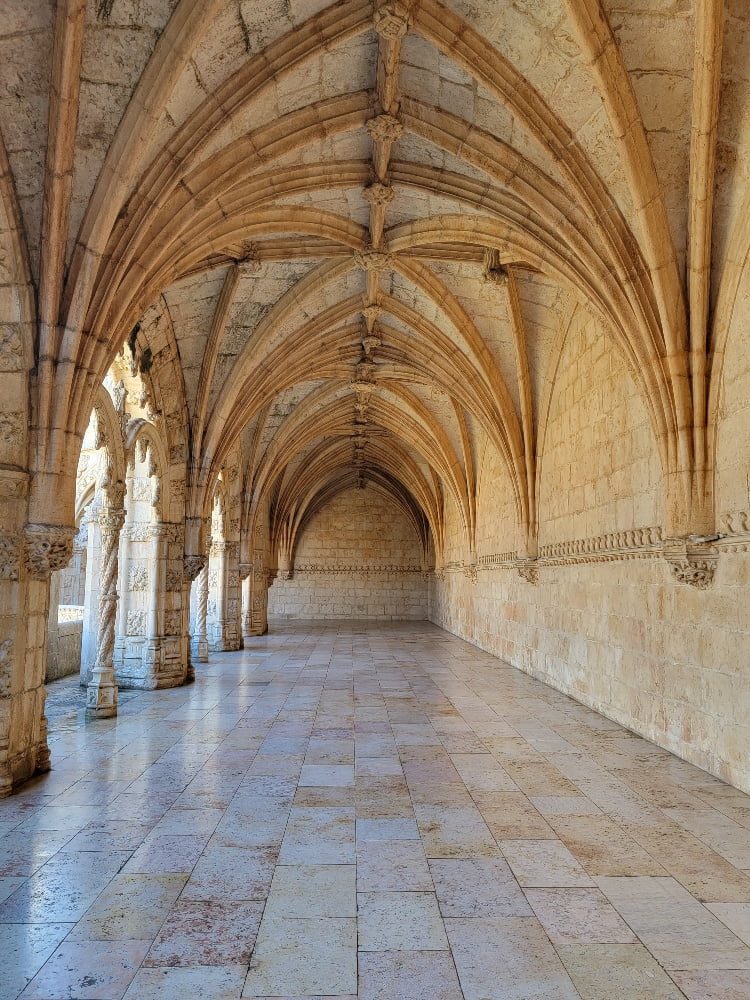
Afterwards we walked east along the water to the Museum of Art, Architecture and Technology, or MAAT. This was housed in two buildings, the first a retired power plant, large, brick, utilitarian, the second a new build museum by architect Amanda Levete (Welsh!), modern and lithe (if you can say that about a building) and between the two a garden.
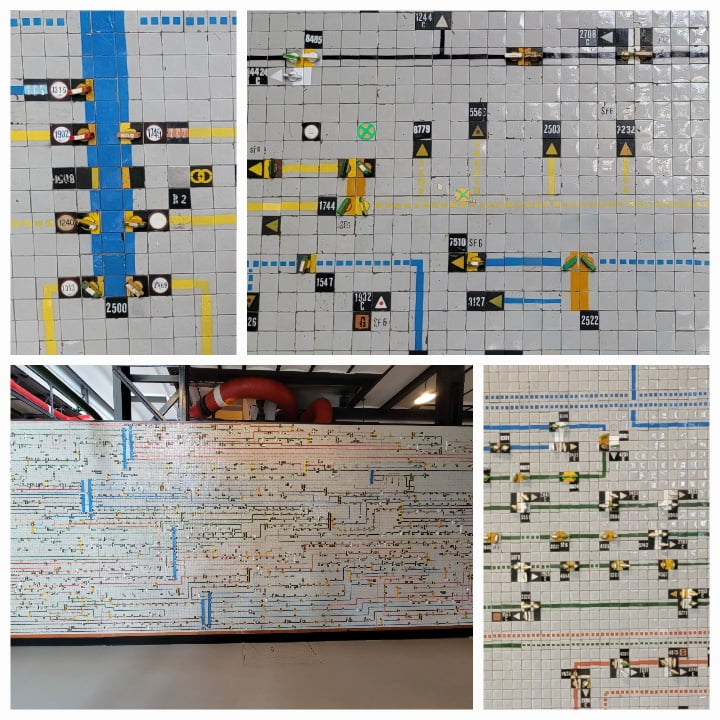
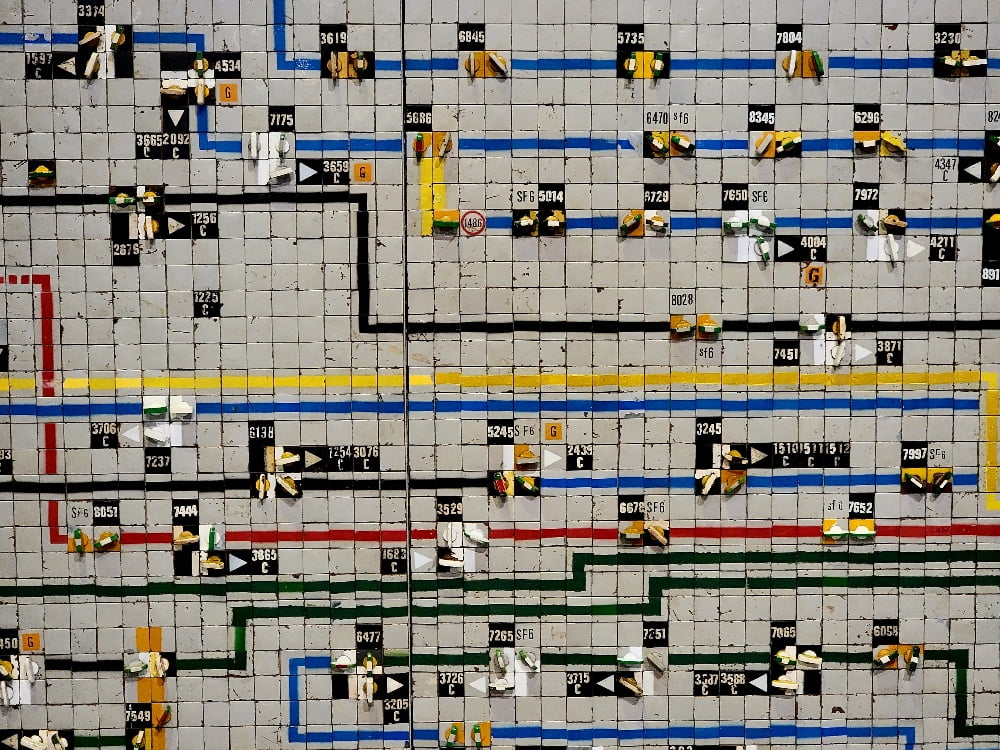
We started with the technology. I was expecting something diverse and immersive, a la Science World in Toronto. Instead, it was weirdly static, with actual turbines and coal fires and electrical “synoptic tables of distribution dispatch” networks. Seriously. There was a hallway of models of dam sites. Literally, dam sites in Portugal. But, at the same time, as strange and alienating as it was, there was also a mechanical draw, to the engineering skill and finesse and the aptitude to dream big and construct big. Big pipes impress! And so beautiful to look at.
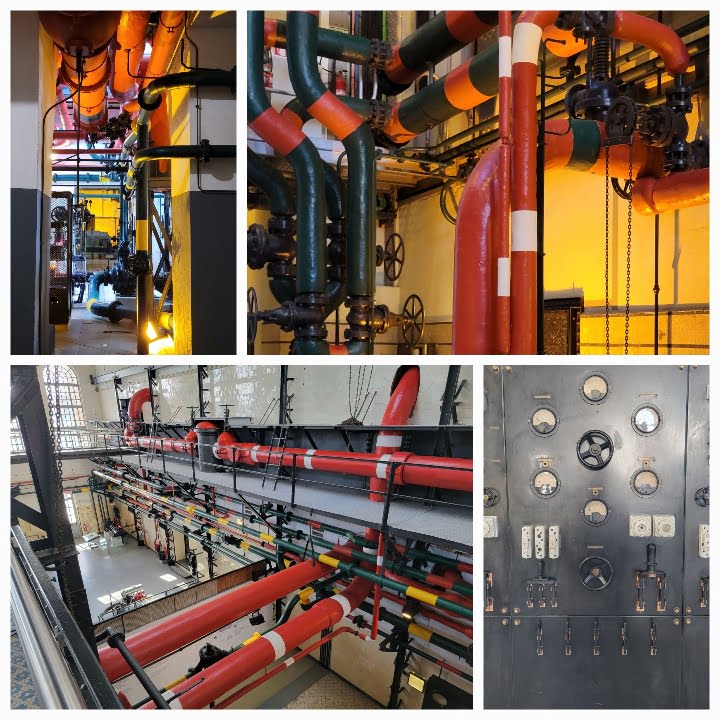
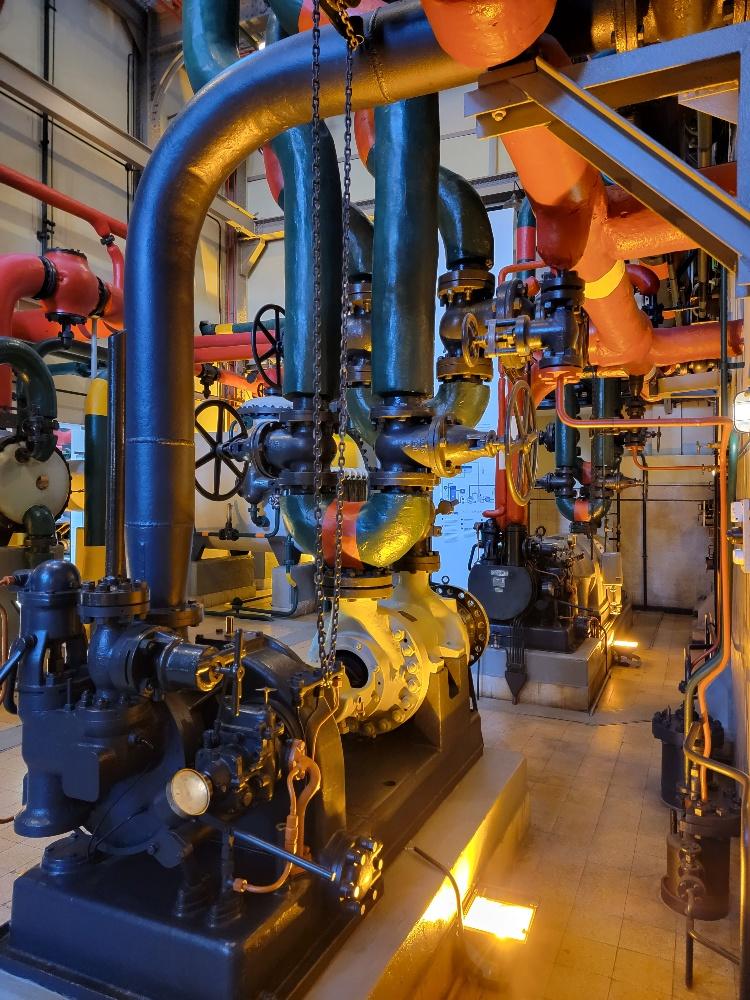
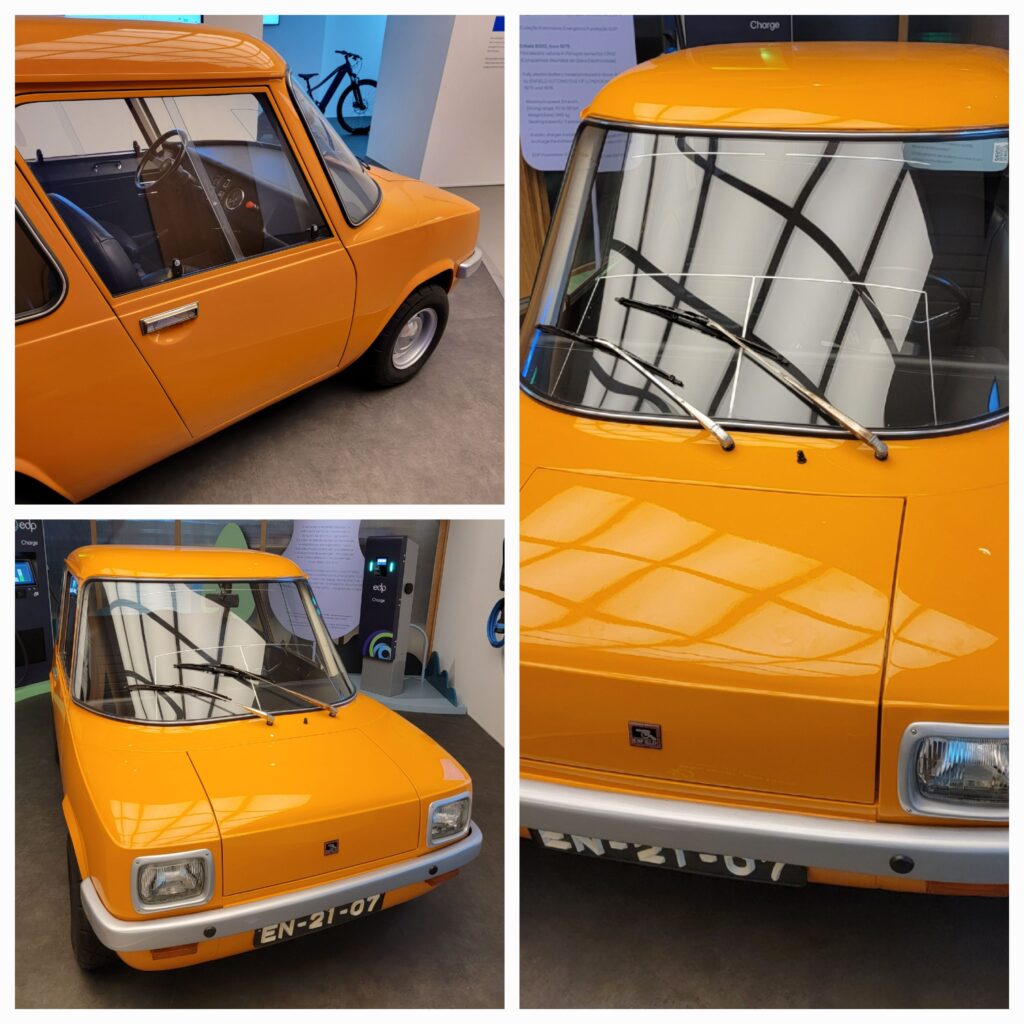
So that was the T of MAAT. Next, we headed off to the A for art museum. The “A” museum towers over the harbour in a slender and extremely sleek façade. Inside, there were huge installations of (perhaps questionable) modern art. The largest, Plug-in by Joana Vasconcelos was quirky and weird and appealing. The second, a surrealist nightmare, was dull and stuffy, and historically exhausting (!) and got no pics on the blog.
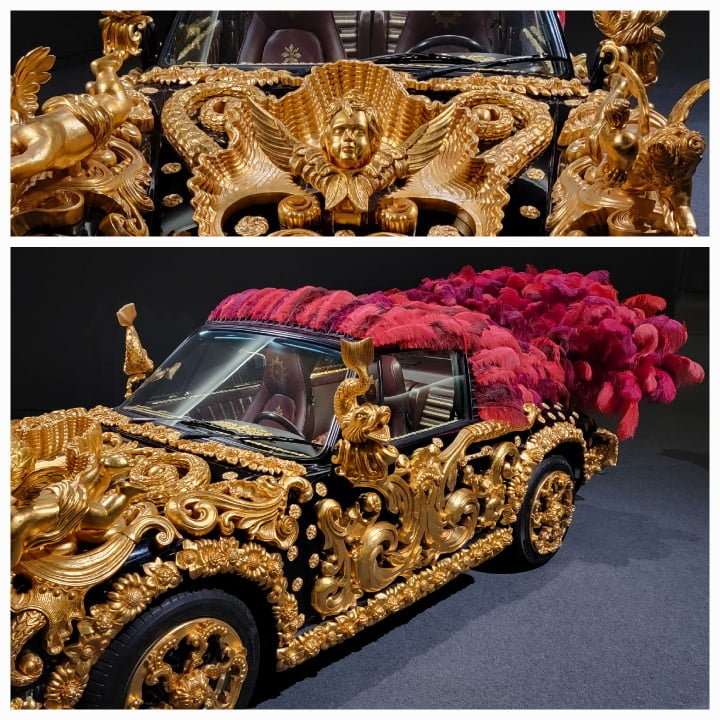
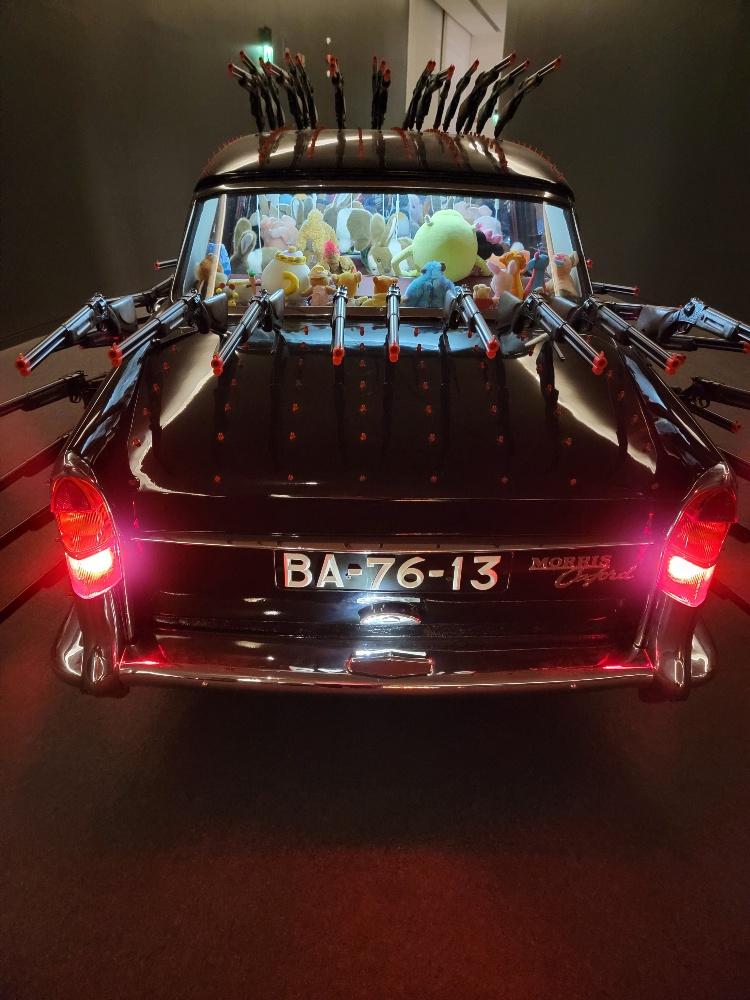
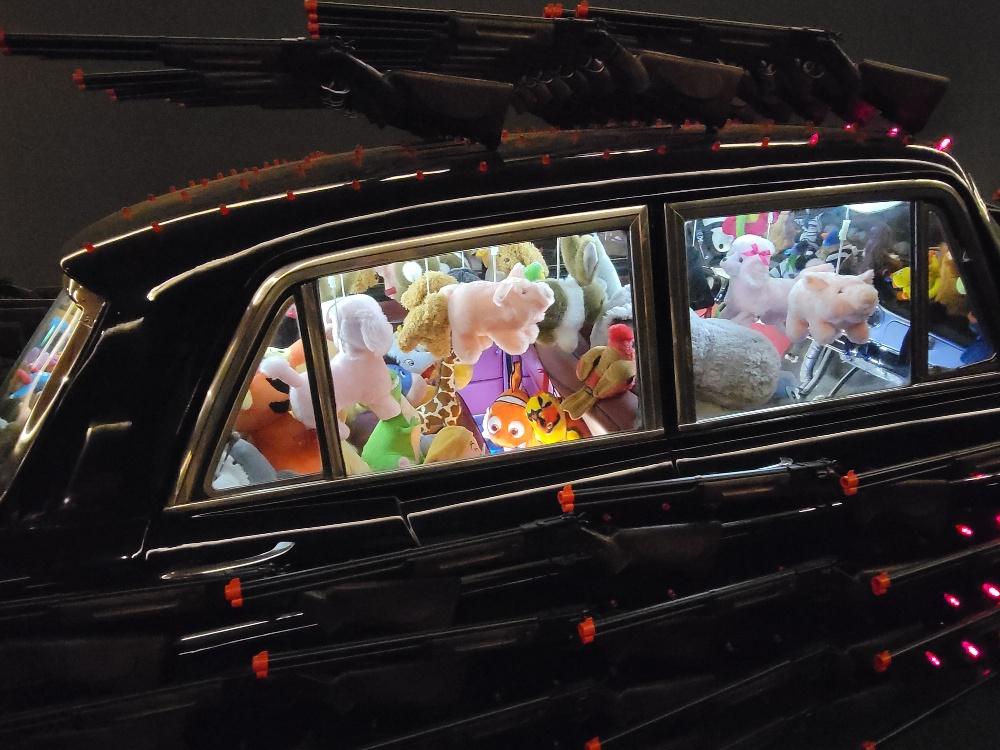
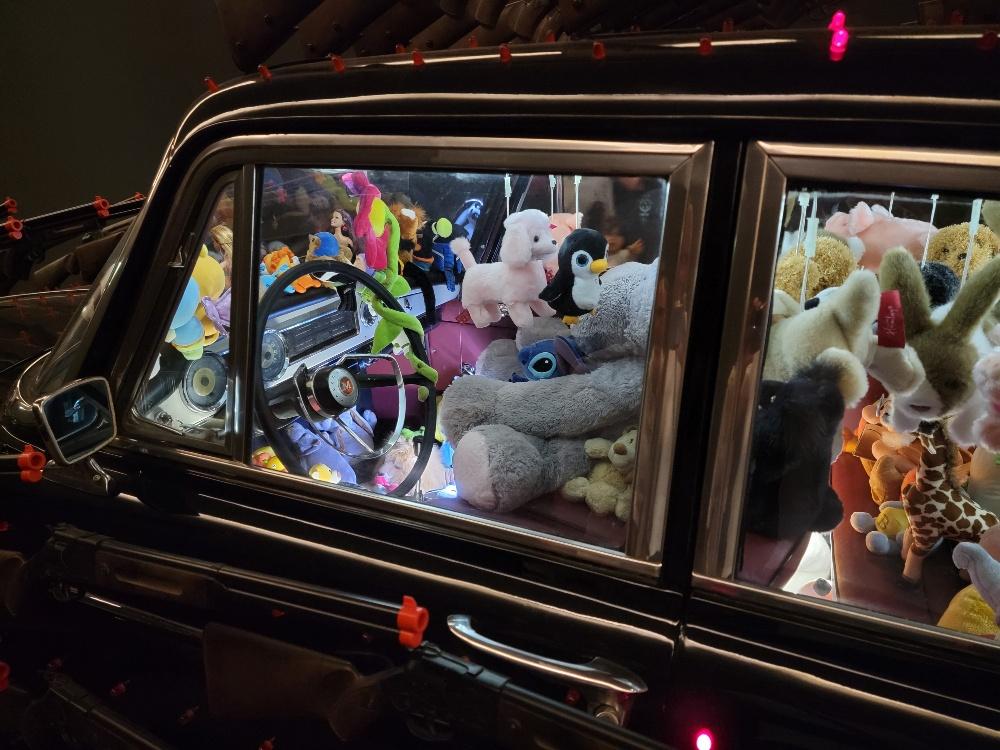

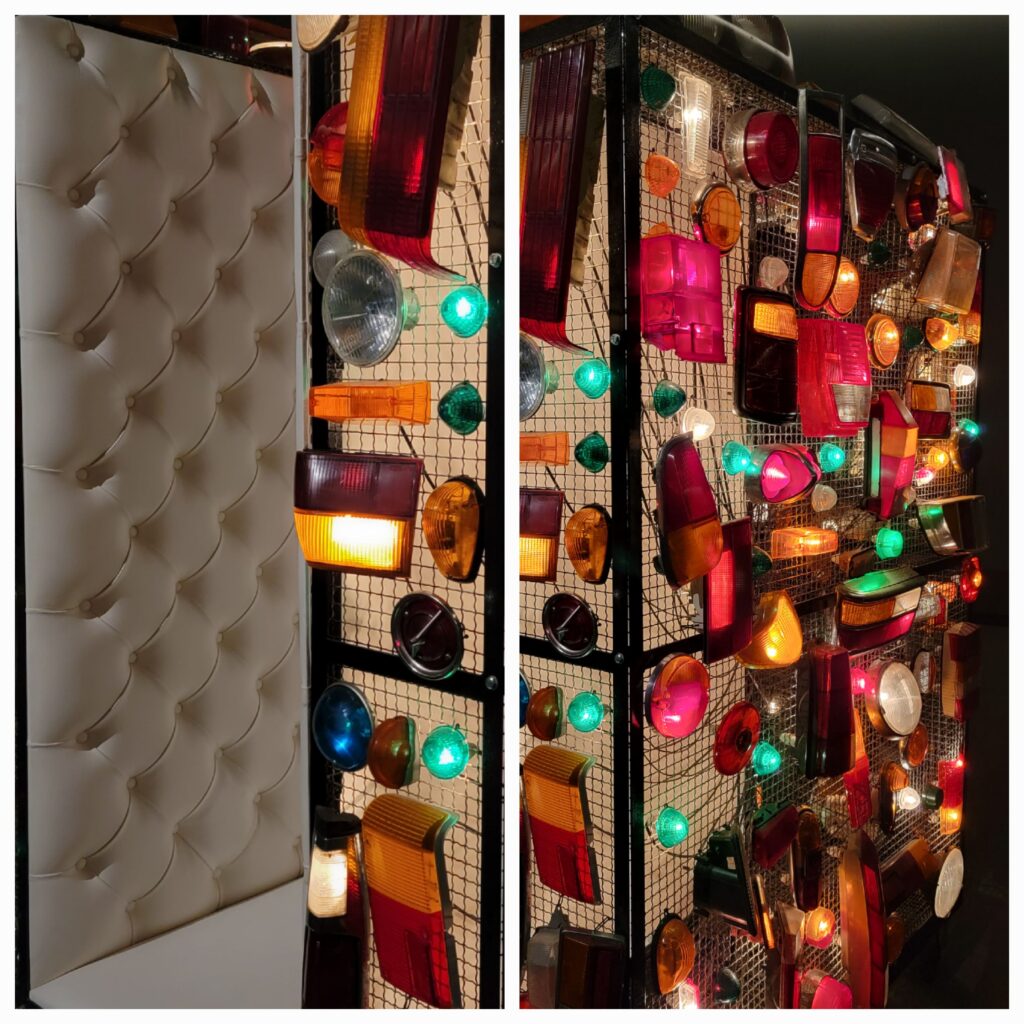
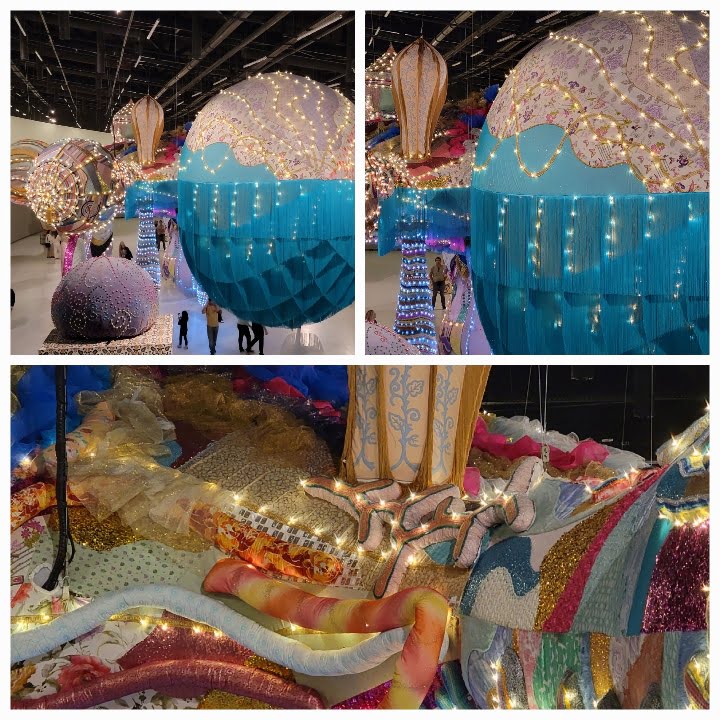
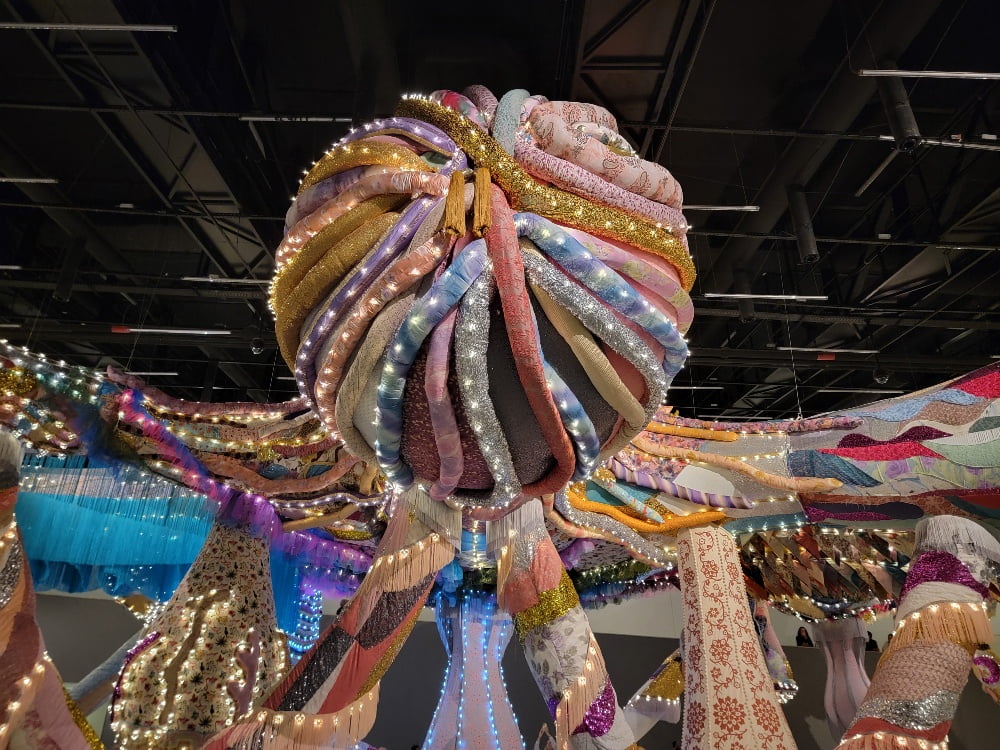
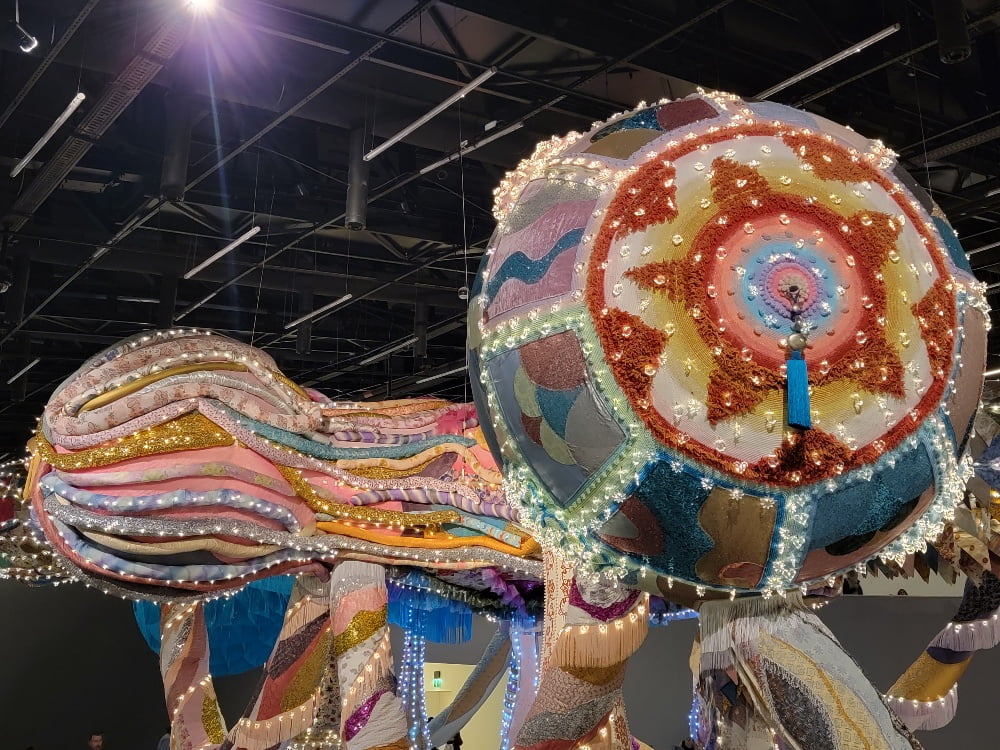
The A for architecture is the building itself (we had initially anticipated actual architecture in an actual museum).
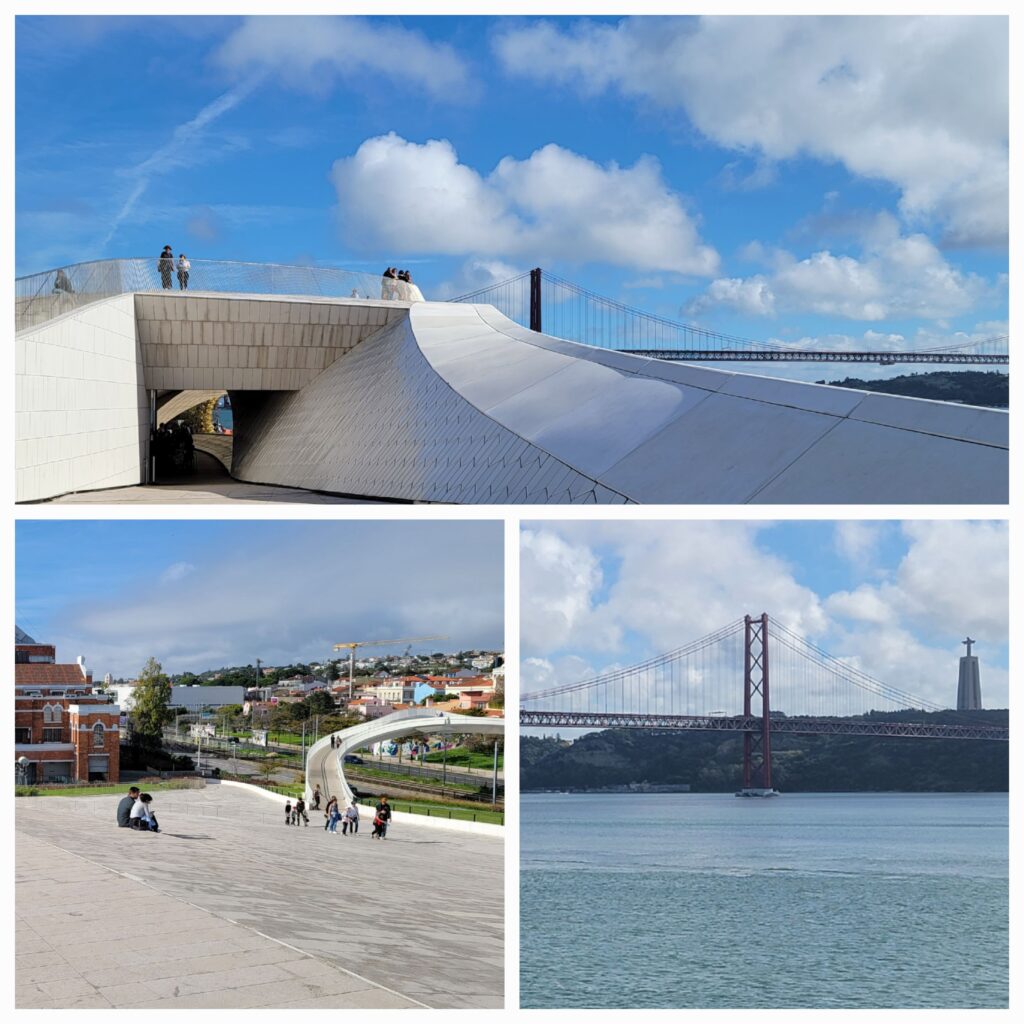
Exterior of the MAAT with public spaces. In the distance the 25 Abril Bridge (originally named the Salazar, but renamed after the “carnation revolution” which overthrew a half century of authoritarian rule). Although the steel work was done by the same company which worked on the Golden Gate, the designers were different; Steinman, Boynton, Gronquist, noted for a bridge in NYC and the Carquinez bridge in San Francisco. Also in view, the Christ the King Monument, from 1959N
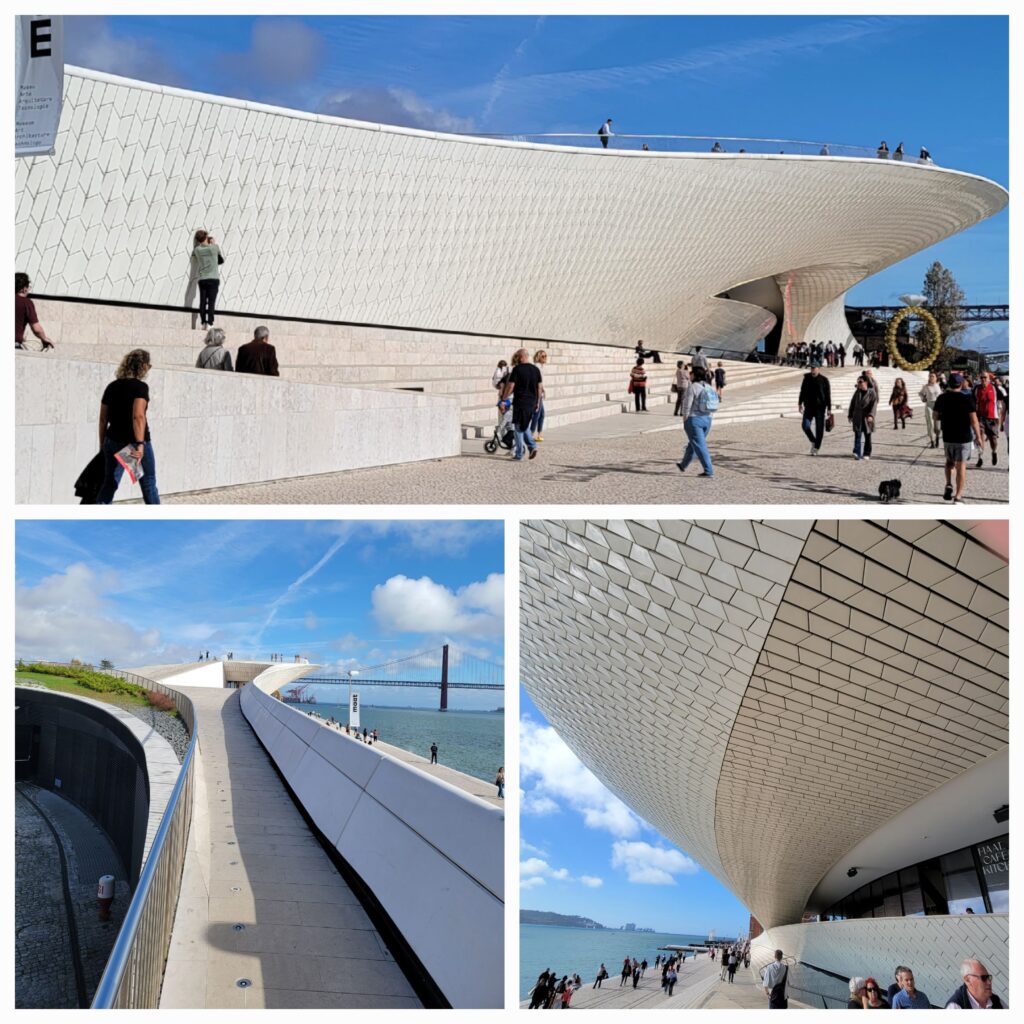
From there we walked about 40 minutes along the ocean to a nearby train station then took the train east and subway north to one of the metropolitan museums, the City of Lisbon, which focuses on the history and development of Lisbon proper.
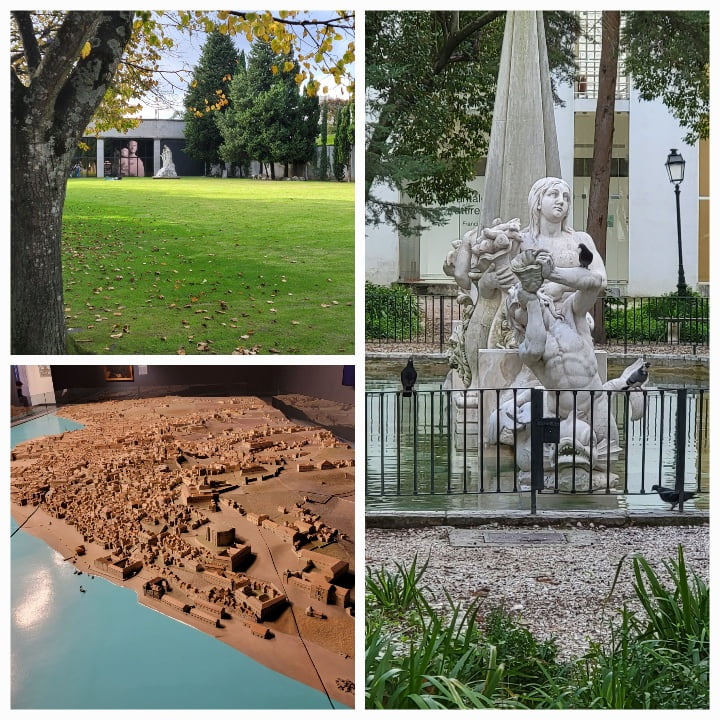
What was fascinating (and news) to me was how long Lisbon has been settled. The museum had relics dating to the Paleolithic, with evidence of human settlement from 200,00 BC through 3,000 BC. Then came the Neolithic, the Chalcolithic and eventually, of course, the Romans. Then of course the Muslims. Then of course the Christians. The Canadians took a little longer.
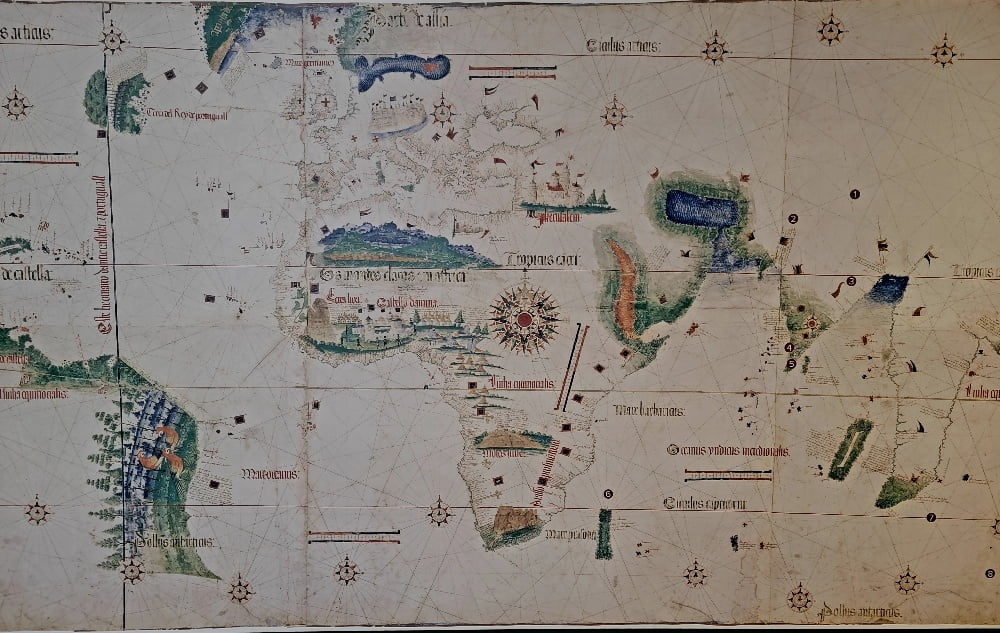
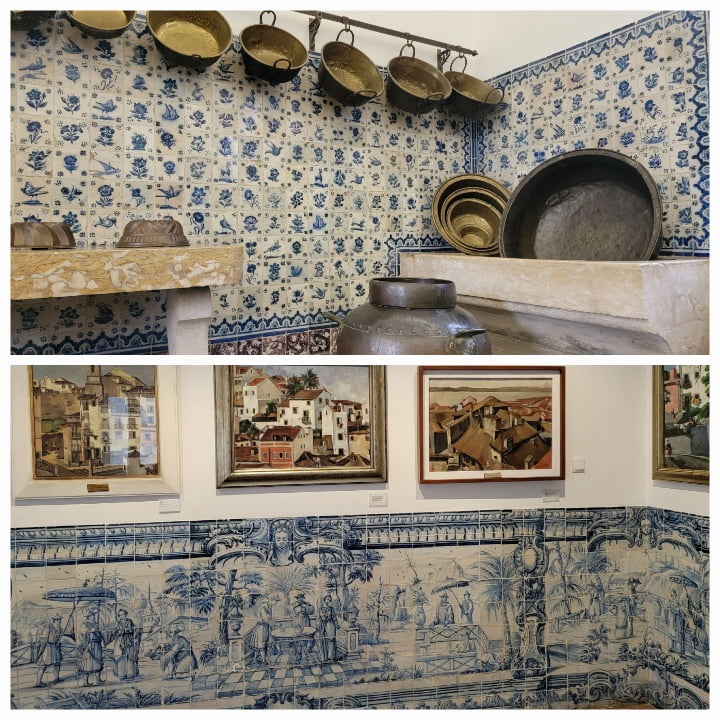
After the City Museum it was getting late; my last bucket list item was riding a historic tram. We took the subway down for the Line 28 but it never came. Or, to put it another way, we waited about half an hour and it was either not running, running extremely late, or replaced with non-tram transportation. Unfortunately, no tram ride. We returned to the hotel.
For dinner we did something simple and plain: Dinner at the Time Out Market. There are several of these around the world now (and soon to come to Vancouver!) but Lisbon was the first. Basically, it’s a series of food stalls, but with inventive and chef-driven cuisine. Think of a mall with a food fair then imagine that there aren’t any chains in the food fair then imagine a zillion foodies and you basically have it.
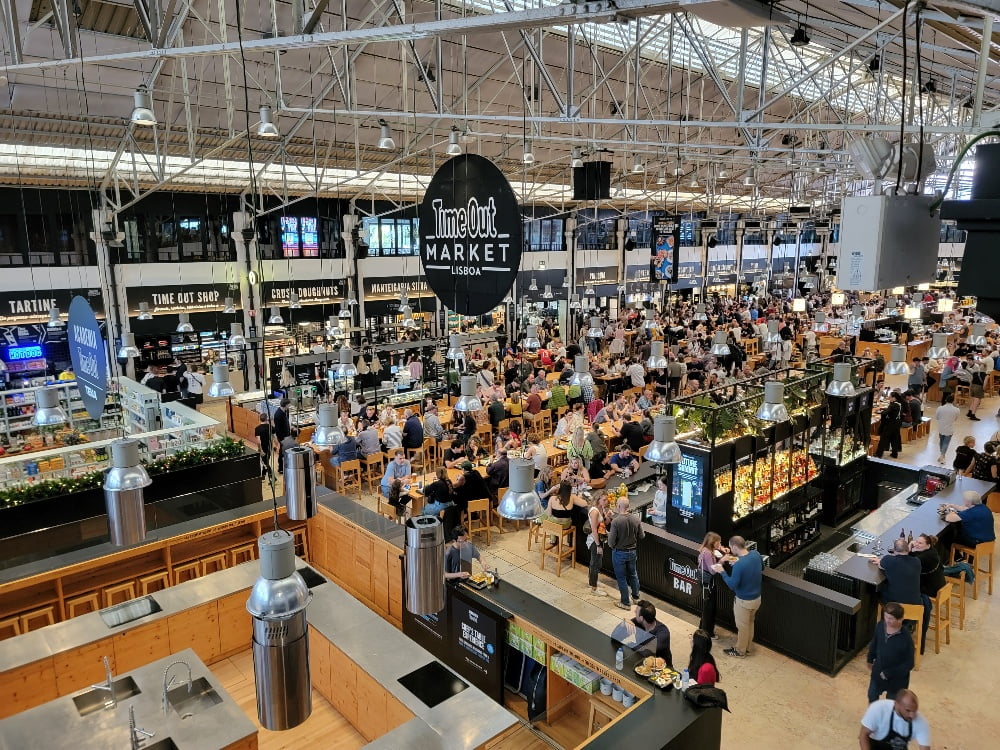
After dinner we packed. And packed. And called it a night. Early (early early) flight Monday. And a long travel day.
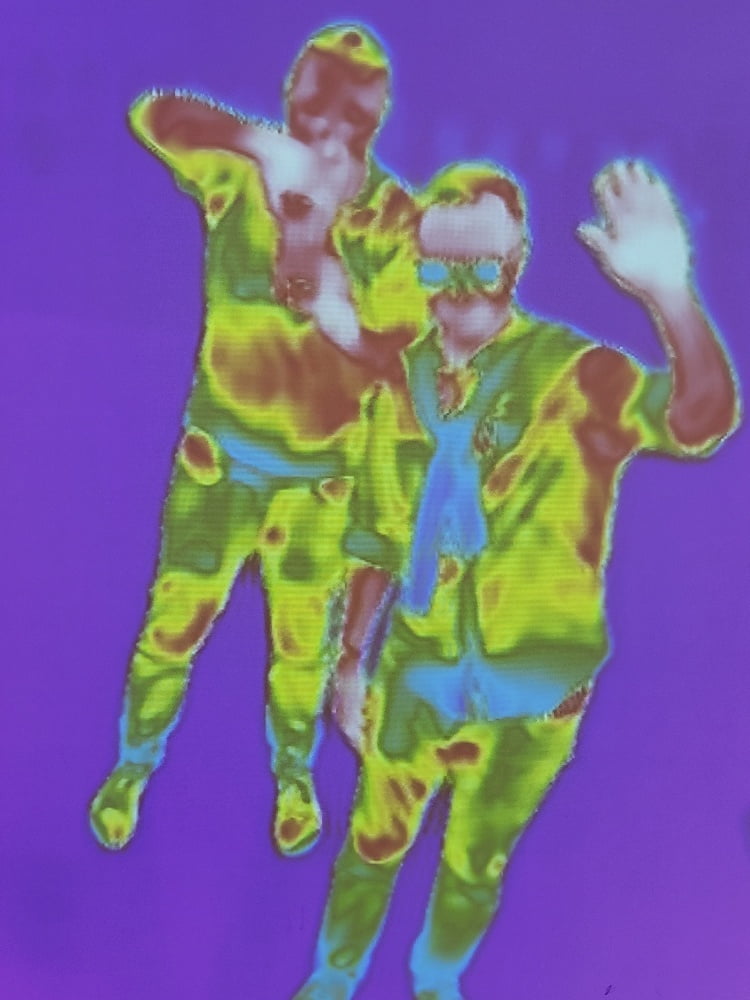
Epilogue
So the end of it all was as per the end of almost every trip abroad: A lot of travel.
We were up at the Lisbon hotel at 4 AM and in a taxi at 4:57 AM. The Lisbon airport was maniacally busy. We had “express” check-in then passport control. We went to the lounge; it didn’t open until 6 AM, it was 5:52 AM. We joined the queue. We got into the lounge (slowly) and Stephen joined a line and eventually ordered two double espressos from the barista; we didn’t realize, hidden away in a corner, was an automatic coffee machine. We drunk our coffee and it was time to board, so we left the lounge and found our way to the gate. The 7 AM flight to LHR was packed. Sure, we were up front, but still, packed, on a Monday, in November. Huh. Although a three-hour flight we were ready to land in just over two hours; but of course LHR was too busy. So we remained in a holding pattern for 20 minutes. Then we started our descent, and that took another 20 minutes. Then we taxied forever, to a random stop for bus transit, another 20 minutes. So Lisbon to LHR is a three-hour flight, favorable winds be damned.
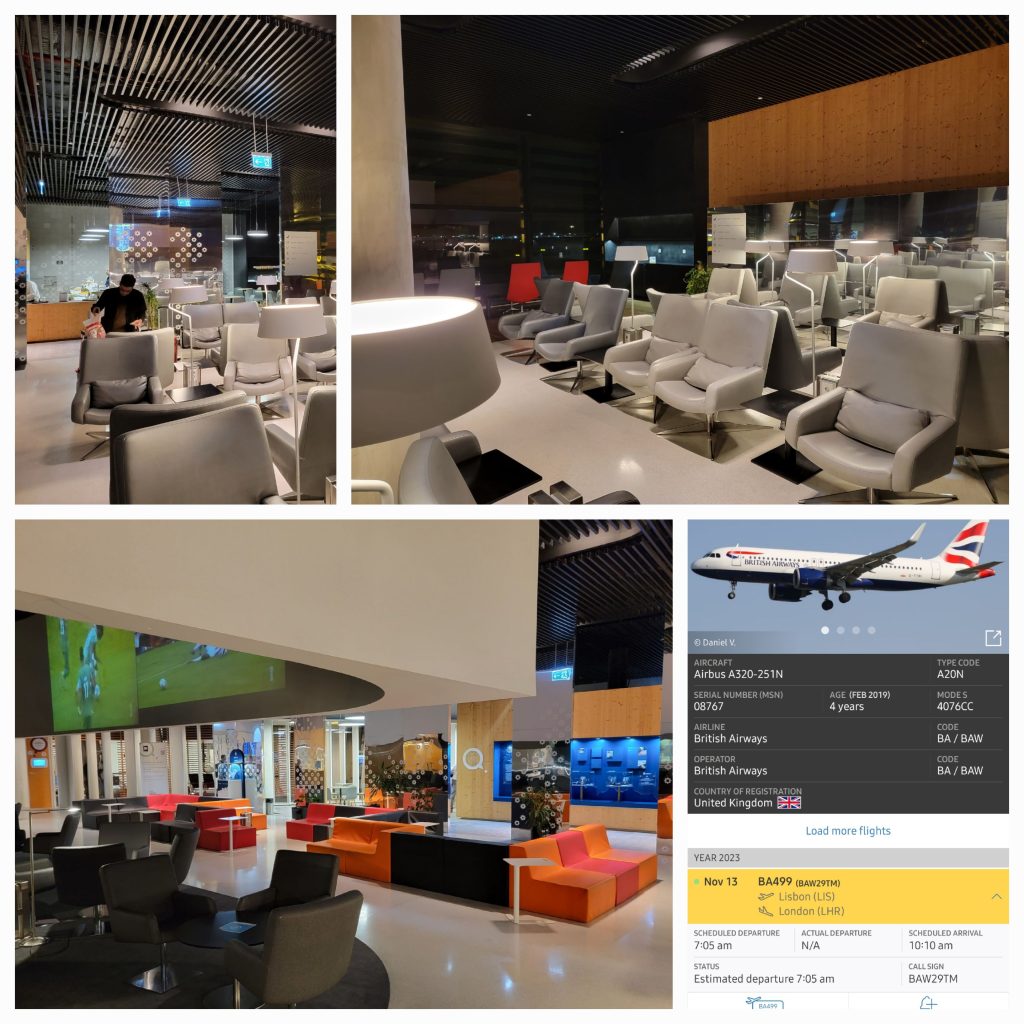
Lisbon wouldn’t connect our bags to YVR, so we collected our luggage, went through passport control, were denied a coffee at the arrivals lounge in T5 (only long haul arriving passengers are admitted, no long-haul departures arriving from a short haul, you’ve gotta love the rules). We took the Express to T3, checked-in, went through passport control again, and hit the lounge for four hours. So it goes.
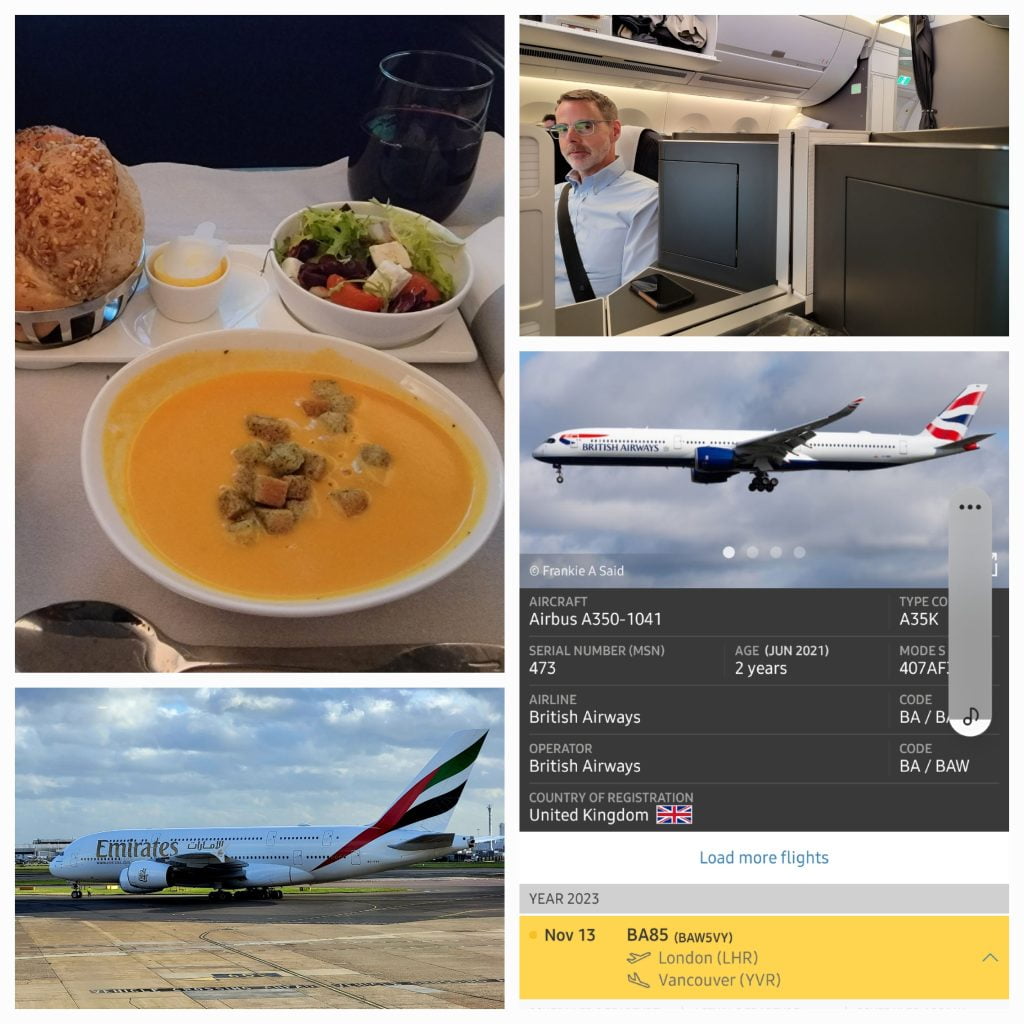
The flight home was mostly full, fairly new wide body, but the service was erratic to the Nth. They were up and down the aisles a million times serving food in the most inane fashion. I’d had my snack, my starter, my main, and was finishing the cheese course and Stephen hadn’t been served his dinner yet. And we were seated next to one another! We arrived in YVR on time, collected luggage from the slowest luggage delivery service in the hemisphere, then into a cab, which was old, smelly, and with a driver who regularly hit 80 km/h on city streets and screeched to a halt at red lights. Home for about an hour before I took a Gravol and hit the hay. Travel. Snore…
